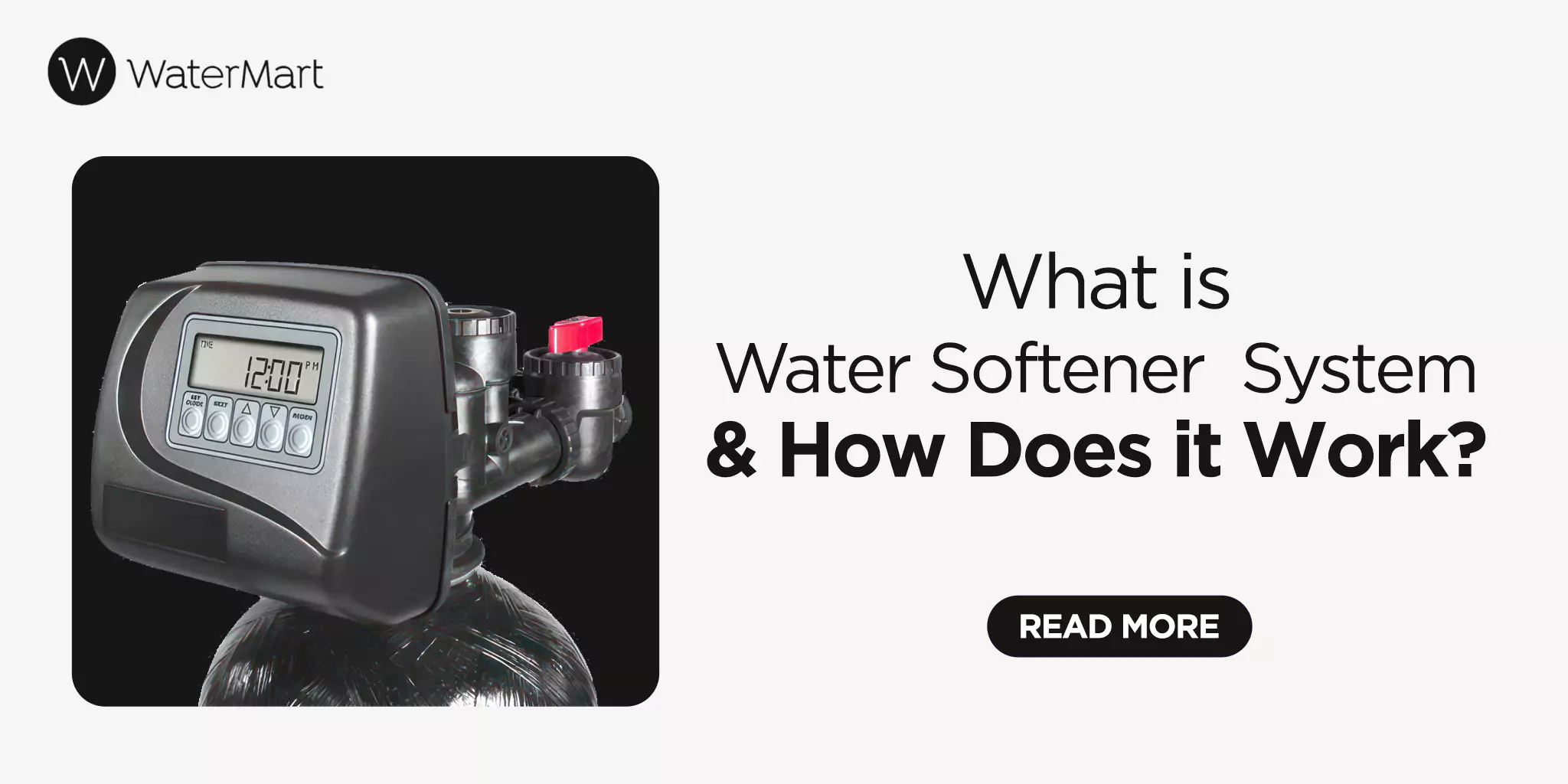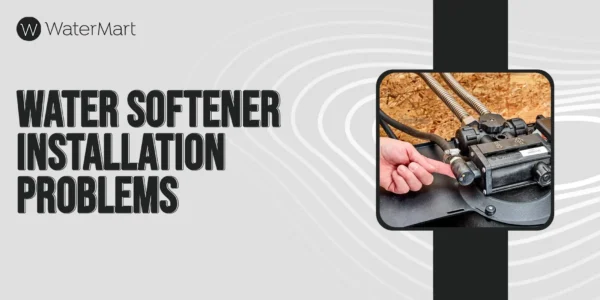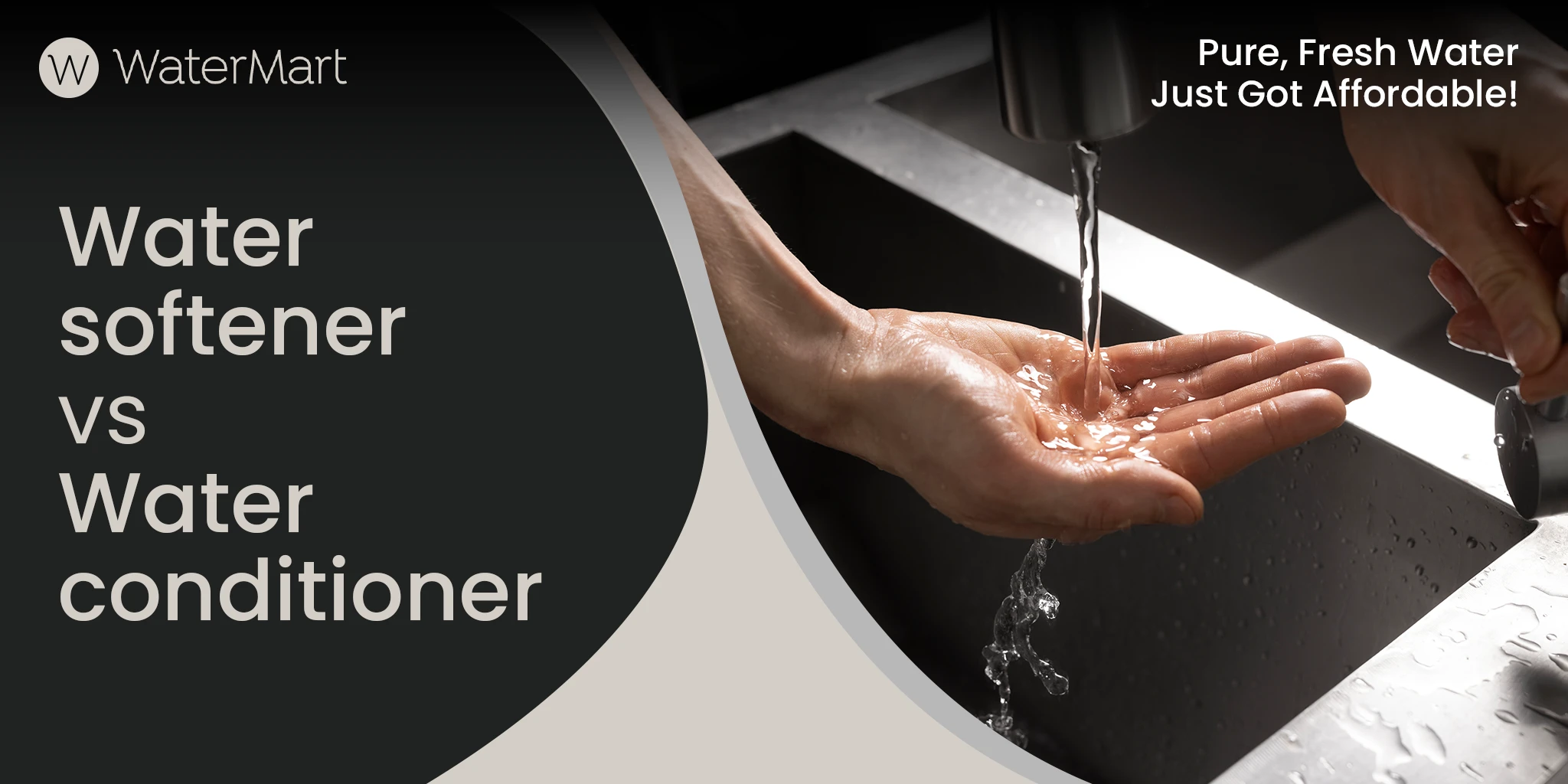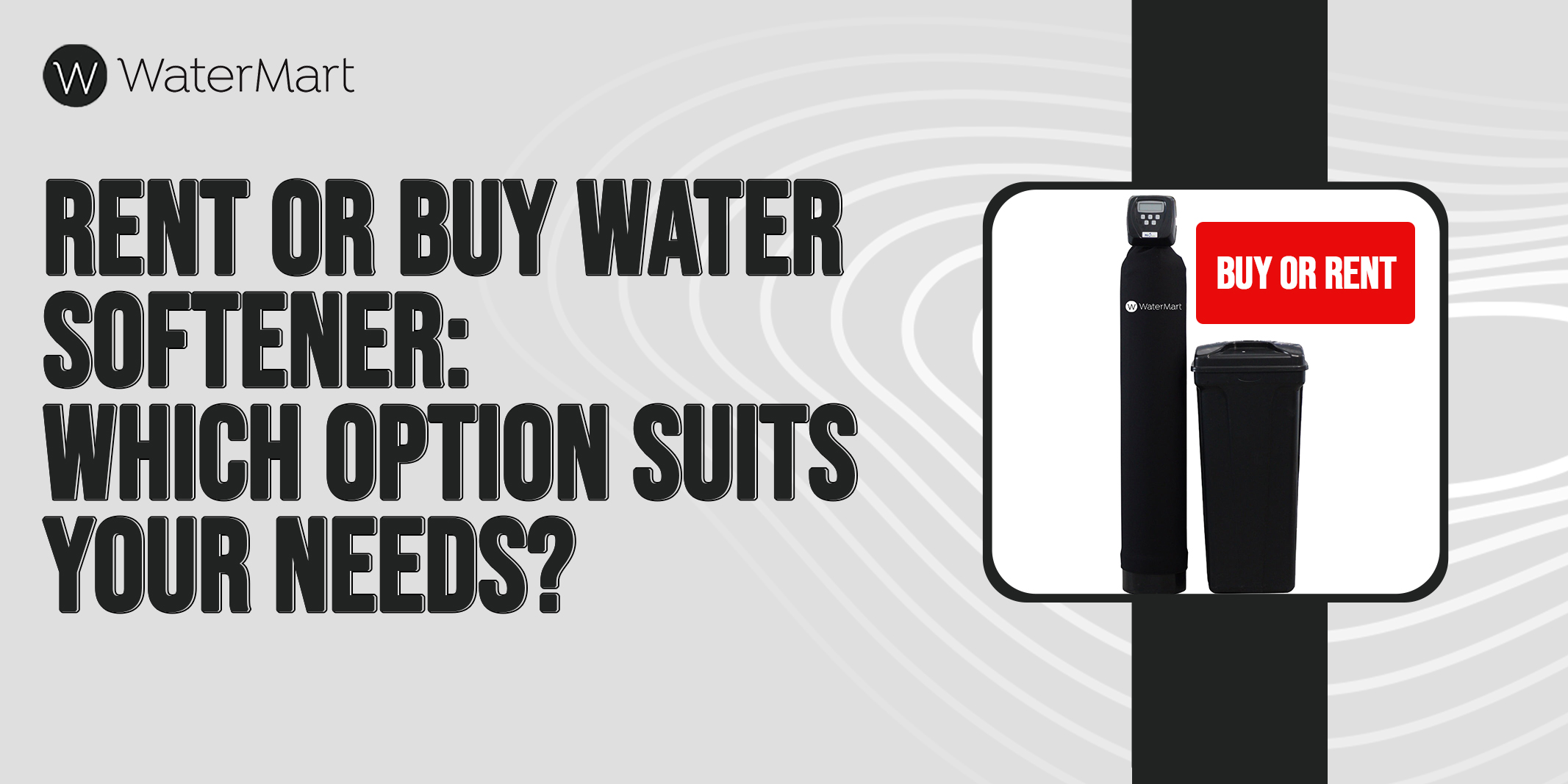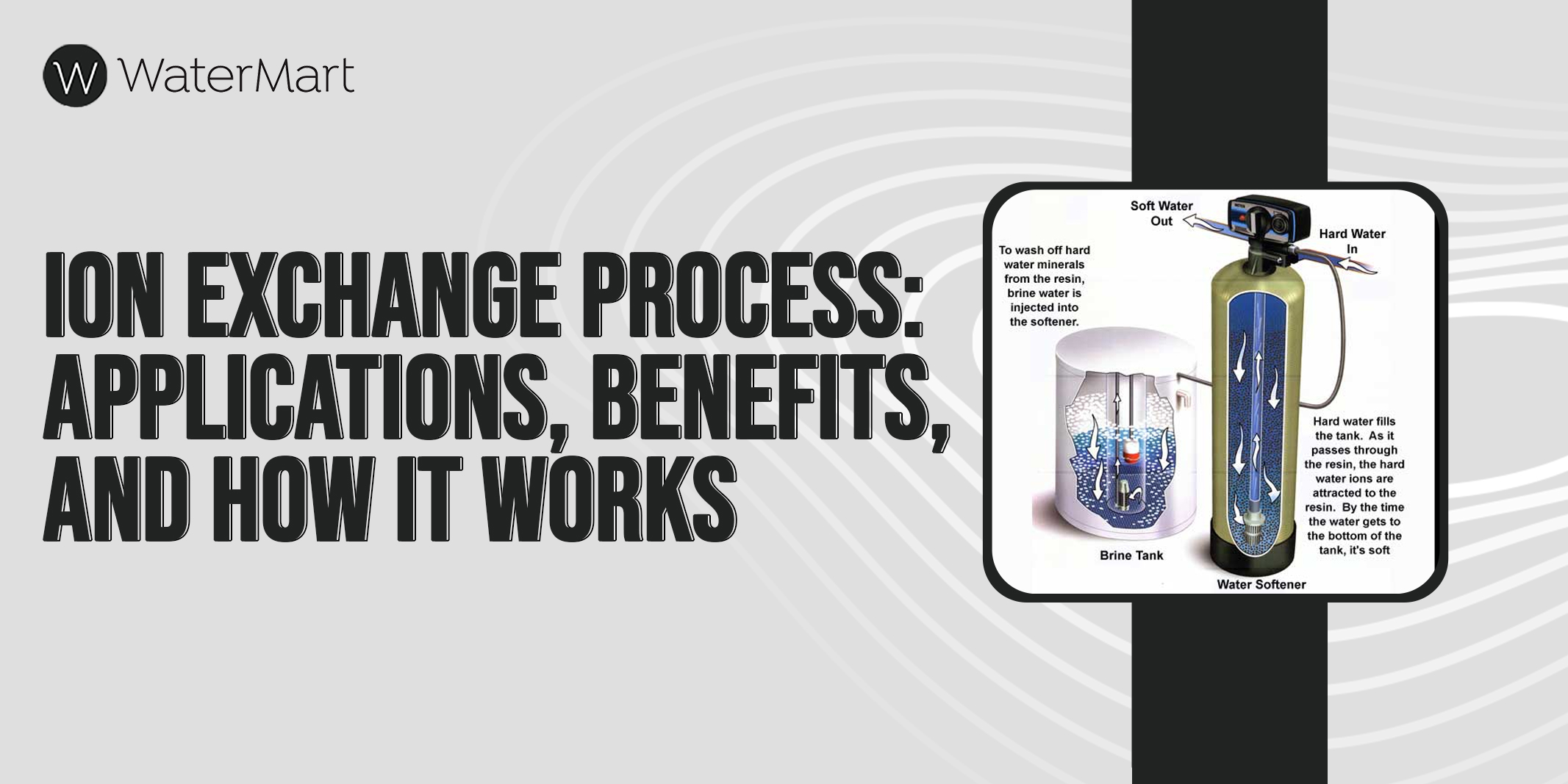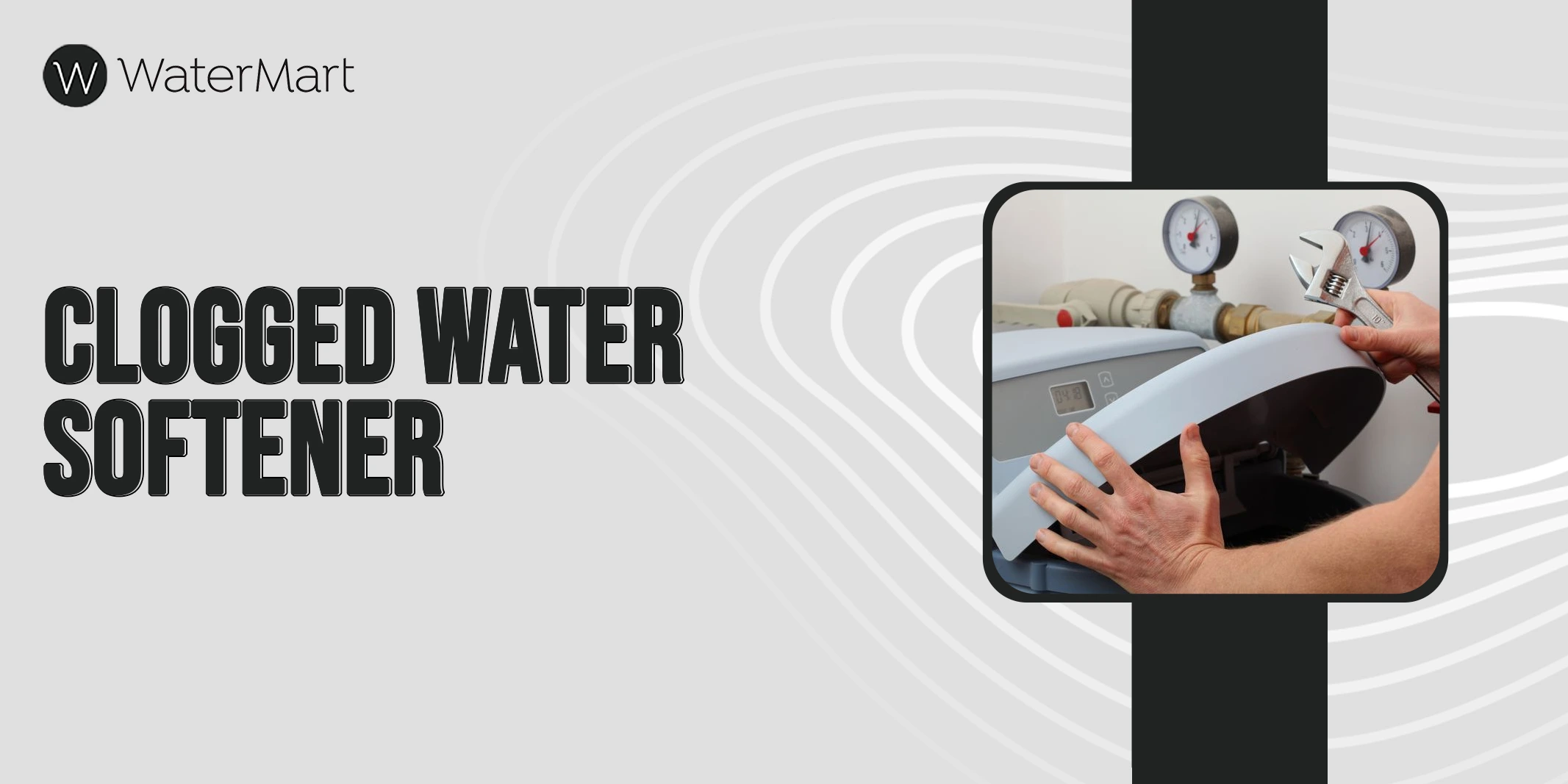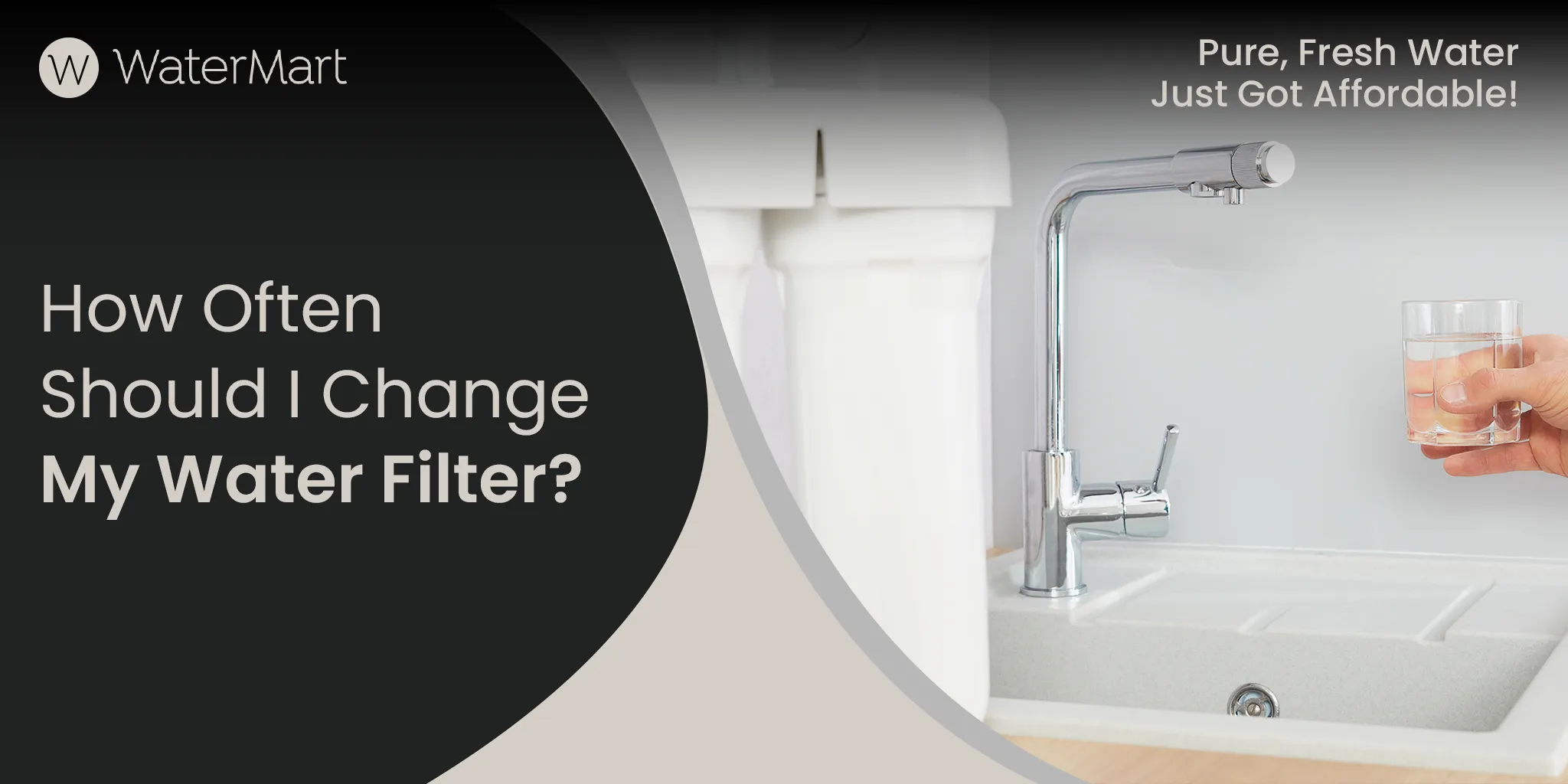Your cart is currently empty!
What is a Water Softener System & How Water Softener Works
Imagine showering with a soap that doesn’t lather, making coffee that tastes horrendous, and scrubbing dishes with persistent white spots. Nerve-wracking, isn’t it? Hard water can be a serious challenge to some people, but not anymore!
Luckily, there’s a lifesaver that softens hard water and improves the efficiency of your appliances like no other; the water softener systems.
But what exactly is a home water softener system and how water softener work? We’ll find out in this article. Also, we’ll discuss the major differences between water softeners, water filters, and water conditioners later in the article.
Stay with us!
What is a Water Softener?
Water softeners are popular water treatment solutions to turn your hard water into soft water. Softening water systems work by the principle of ion exchange, a method that removes high levels of dissolved minerals from your water supply, such as calcium and magnesium.
Water softeners today are highly efficient, affordable, and self-cleaning. They require less maintenance and upkeep.
At WaterMart, you can even rent or purchase water softening systems with additional perks, such as Sediment filters, leak prevention, and Chlorine and Lead removal.
How Do Water Softeners Work?
Water softeners work on the basic principle of the ion exchange method. Suppose Calcium Magnesium and other hard water minerals are positively charged ions that cling to your water molecules.
Water treatment solutions, such as water softeners, have tiny resin beads that attract positively charged ions. As a result, the Calcium and Magnesium ions cling to the resin beads, allowing them to release sodium ions into the water. This process turns your hard water into soft water.
In simple words, hard water enters the water softener tank where all the dissolved mineral ions cling to the resin beads. As a result, sodium ions take the place of magnesium and calcium ions, transforming hard water into soft water.
When the resin beads are over-saturated with hard minerals, the softening system starts the regeneration phase. The cycle allows the brine to wash over the beads that flush out the trapped minerals and restore the sodium ions for effective softening.
Water Softener vs. Water Conditioner vs. Water Filtration System
Water softener, water filter and water conditioner are some of the common terms for the whole water treatment solution process.
We’ll demonstrate the differences, functions, and benefits of each process in this guide.
Water Softener
Water softeners remove Calcium and Magnesium ions from your water, making it soft. They work on the principle of ion exchange method to trap hard minerals and replace them with sodium ions. Water softeners help in reducing scale buildup and improve lathering for efficient cleaning.
Water Conditioner
Water conditioners alter the structure of hard minerals without removing the minerals. The process is usually done with physical barriers to alter the hardness of minerals and prevent scale buildup. They improve the taste and odor of water and allow for deep cleaning of utensils and appliances. For more information on the differences between water softeners and water conditioners, check out our guide on Water Softener vs Water Conditioner.
One common type of water conditioner is a magnetic water softener. These systems use magnetic or electromagnetic fields to alter the behavior of hard minerals, helping reduce scale buildup without removing calcium or magnesium from the water.
Water Filtration System
Water filters remove impurities and other contaminants from your water supply, including lead, bacteria, Chlorine, and sediment. Water filters use activated carbon, reverse osmosis, and mechanical filtration.
At WaterMart, we use catalytic carbon for chloramine reduction in place of standard activated carbon to efficiently reduce the Chloramine levels in your water.
Benefits of Water Softeners
Besides, cleaner, pure drinking water, here are some amazing advantages of water softeners for your home.
Effectively Soften Water
Water softeners use the ion exchange method to effectively soften hard water with zero scale buildup in pipes and appliances. The soft water also allows for better cleaning, resulting in sparkling dishes, and bathtubs.
Protect Appliances
Calcium and Magnesium from hard water accumulate inside your appliances over time and cling to the heating elements or internal components of your appliances. As a result, your appliances have to work overtime to heat the water, reducing their efficiency.
Water softeners remove the hard minerals from your water to prevent insulation and maintain uniform water flow throughout your home.
Enhance Cleaning
Hard water prevents your detergent and soap from lathering properly, allowing more soap to be used with reduced cleaning power. Furthermore, hard water leaves a soapy, filmy residue on your dishes, clothes, and skin, making it drier, duller, and brittle.
Soft water effectively deals with these issues and provides clear cleaning advantages, including superior lathering, reduced soap scum, cleaner dishes, brighter skin, and smooth, silky hair.
Last Over A Decade
Highly efficient water softeners can last over a decade provided that they go through regular maintenance and inspection for leaks for optimal performance and longevity.
For a full list of benefits and more details, visit Water Softener System Benefits.
Pro Tip: To increase the lifespan of your softeners, use high-quality salt, specially designed for softeners to prevent clogging.
Disadvantages of Water Softeners
Water softeners offer numerous benefits for homes. Nonetheless, there are some disadvantages to consider.
May Put Too Much Sodium Into Water
Sodium content is usually safe to consume for healthy individuals. However, people with health conditions or on a sodium-restricted diet should avoid installing a water softener as it adds high sodium content into water.
Expensive To Install And Maintain
The initial cost of a water softener is very high. Not to mention the recurring costs for salt and constant tune up can be high.
Can Overload A Septic System
Water softeners may have a negative impact on the environment because of the regeneration process.
Produce Wastewater
The regeneration process also uses significant water to clean the resin beads, producing wastewater.
Conclusion
Water softeners are an excellent choice for people looking to treat hard water in their homes. They allow you to live a happy, healthy life with no scum and scale buildup, better cleaning, shiny thick long hair, and beautiful spotless skin.
The benefits of water softeners go beyond squeaky clean bathtubs and dishes. They protect your appliances and increase their lifespan. Also, if used and maintained properly, they can last you a lifetime.
However, if your water concerns are only limited to treating contaminated water with bacteria and viruses, or if you have health concerns, water filters might be the right choice for you.
At WaterMart, we offer a comprehensive range of water treatment solutions tailored to your needs. Schedule a water test with us for FREE today.
FAQS
Do Water Softeners Require Maintenance?
Yes, water softeners require regular maintenance and upkeep for optimal performance.
What Should You Know About Salt Replacement?
Salt replacement is a crucial step in enhancing the performance of your water softeners.
During the process of regeneration, your brine tank runs out of salt. The salt replacement is necessary to ensure the proper working of your softener along with regular maintenance. The frequency of salt replacement depends on your water consumption, water hardness levels, and softener size.
The general rule of thumb is to refill the tank when it’s half empty.
How Long Does A Water Softener Last?
If used properly under regular maintenance, a highly effective water softener lasts over a decade.
What Are the Smart Features of a Water Softener?
At WaterMart, we have smart upgrades and options to keep your softener working continuously. Our system connects to your phone and allows you to detect changes in mineral levels. It also allows you to monitor and control the water flow to prevent leaking.
What Are The Best Softener Options?
We offer different softening options based on your needs, water hardness levels, household size, and water usage. Schedule a call with our team to get a FREE water consultation.
How Do You Choose The Right Softener?
Choosing the right water softener depends on many variables, including water hardness levels, water consumption, and household size. Above all, it’s recommended to do a water test to understand your hardness level. Book your FREE water test here.
How Do You Know Your Softening Needs?
If you’re facing issues, such as scale buildup, soap scum, water spots on dishes, dry skin, brittle hair, and inefficient cleaning, chances are you need a water softener.
However, testing your water by professional experts to understand softening needs is highly recommended. At WaterMart, you can schedule professional water testing services for FREE.
What Is Water Softener Salt?
The most commonly used water softener salt is Sodium Chloride (brine). However, sometimes Potassium Chloride is also used in place of Sodium. These salts attract Magnesium and Potassium ions and transform your home’s hard water into soft water.
